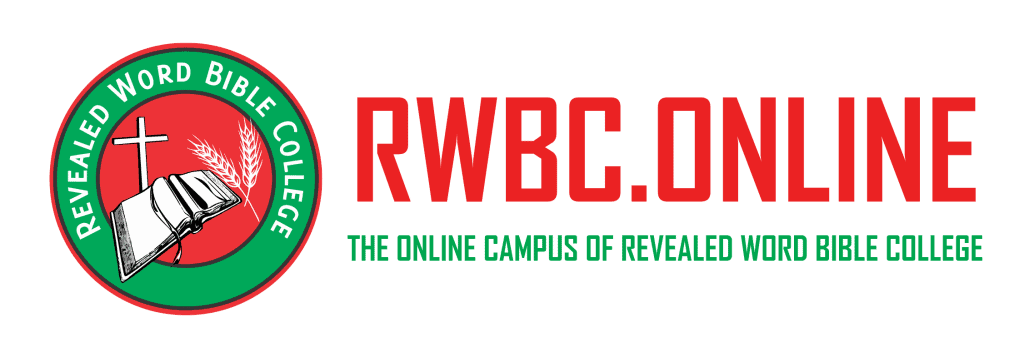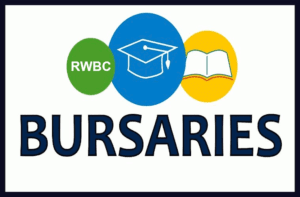Share this post:
RWBC.ONLINE offers you a choice of two payment plans:
1. Once-off Payment in advance for the entire course.
2. Monthly Subscriptions.
Discounts are offered for advance payments made when applying option 1
Course Fees (Prices below are reduced by 25% – Special Discount during the Launch)
First year including Certificate in Ministry is U.S. $94,50 P.A. when paid in full.
Second year including Associate Degrees BMin. and BTh. are U.S. $101,25 P.A. when paid in full.
Two-year programs including Associate Degrees U.S. $ 195,75 if paid in full in advance.
Third Year U.S. $ 141,75 if paid in full in advance.
Certificates
The cost of certificates is U.S. $30,00 each, which includes postage and packaging.
Fees are subject to annual reviews and may increase. Students who elect to pay in advance will not be subject to prices increases for the period paid for.
Assessment, Progression and Qualification
We require an 80% pass rate per subject.
Credit Accumulation
We are required to maintain accreditation standards, to utilize credit hours as a measurement. Credit hours are calculated as 1 credit hour equals 10 hours of actual working time. Credit hours encompass all time (formal classes, self-study, reading, researching, writing assignments etc.) spent by students in completing their studies.
The actual time which students need to successfully complete their studies varies considerably. Therefore, credit hours are not a precise measurement but provide students with an indication of the amount of study time required for the successful completion of studies. and the degree of commitment expected.
Credit hours are based on how long it would take an average full-time student entering a university and studying that subject, at that level, for the first time, to gain the knowledge, skills and understanding for successful completion of studies. It is therefore assumed that an average student will require 120 credit hours or 1200 hours actual time to successfully complete a bachelor’s degree. This is based on an international standard.
Certificate in Ministry
Equates to 7 1/2 actual hours study per week in the first year, which is 300 actual hours (30 credit hours) a year.
Counselling 1
Equates to 9 hours a week which is 360 actual hours (36 credit hours) a year.
Third year equates to 13,5 hours per week which is 540 actual hours (54 credit hours) per year. The total is 1200 actual hours (120 credit hours).
What’s the Difference Between Credits and Credit Hours?
Credits are calculated slightly differently but ultimately are very much the same as credit hours. A module consisting of 12 credits equates to 120 notional hours. It therefore requires at least 8 hours of study per week in a 15-week semester. Qualifications require a certain number of credits, broken down into smaller units. Credits are the number of notional study hours required for achieving the learning outcomes. Notional hours include study time, assignments and examinations. The credit rating system rates 10 notional hours as equivalent to one credit.
Credit Accumulation And Qualification
Each undergraduate course is worth 12 credits, which will accrue towards your qualification. When you complete your studies, whether or not you have earned a qualification, you will be issued with a transcript detailing all your courses and the credits you have earned.
You need to accumulate 120 credits to be awarded a qualification at Higher Certificate level and 360 credits for a Bachelor of Theology. The Bachelor of Theology Honours requires 120 credits above a Bachelor’s degree. An additional 180 credits are needed to obtain the Masters degree (i.e., 660 credits in total), and a further 360 credits for the Doctor of Philosophy Degree.
Progression
Once you have met all the requirements for your chosen qualification, you will be awarded the qualification.
NQF LEVELS, NOTIONAL HOURS AND CREDITS: THE DEFINITIONS NQF LEVEL DESCRIPTORS Level descriptors, as the nomenclature suggests, provide a description of each of the ten levels on the National Qualifications Framework (NQF). The purpose of such description is to assist a writer of standards or qualifications in designing a qualification by allocating a level to a unit standard or a qualification, and to formulate outcomes and criteria for assessment that could clearly indicate the level of knowledge of a learner required to successfully achieve the unit standard or qualification.
NQF LEVEL BAND QUALIFICATION TYPE 10 HIGHER EDUCATION AND TRAINING • Post-doctoral research degrees • Doctorates 9 • Masters degrees 8 • Professional 4-year Bachelor’s degrees • Bachelor Honours degrees 7 • Bachelor’s degrees • Advanced diplomas • (3rd year level) 6 • Diplomas • Advanced Certificates • (1st and 2nd year level) 5 FURTHER EDUCATION AND TRAINING • Higher certificates • Foundation modules 1-4 GENERAL EDUCATION & TRAINING • National certificates In line with the level descriptors, qualifications and unit standards are registered at the
specified level of the NQF with a number of credits allocated to it. This means that a learner could accumulate credits for successful completed unit standards towards a qualification making learning more flexible to meet learner needs. If additional information is required about the new NQF levels, please visit Level descriptors (July 2004) included in the official documentation on their website.
NOTIONAL LEARNING HOURS ‘Notional learning hours’ are the estimated learning time taken by the ‘average’ student to achieve the specified learning outcomes of the course-unit or programme.
They are therefore not a precise measure but provide students with an indication of the amount of study and degree of commitment expected. Notional learning time includes teaching contact time (lectures, seminars, tutorials, laboratory practical’s, workshops, fieldwork etc.), time spent on preparing and carrying out formative and summative assessments (written coursework, oral presentations, exams etc.) and time spent on private study, whether in term-time or the vacations.
Notional Learning Time The number of hours, which it is expected a learner (at a particular level) will spend, on average, to achieve the specified learning outcomes at that level. It includes all learning relevant to achievement of the learning outcomes e.g. directed study, essential practical work, project work, private study and assessment. Credit provides a means of quantifying learning outcomes achievable in notional learning hours at a given level. • One credit is awarded for 10 notional hours of successful learning activity. • Notwithstanding the link between credit and notional learning time, the emphasis of assessment should be upon learning achieved and not time served. • Credit is awarded for the achievement of specified learning outcomes. No additional credit can be awarded for achievement above the threshold level (although such achievement can be recognised through the award of marks or grades). Notional learning time Taught or contact time will vary according to the mode of delivery, but notional learning time will not. All learning relevant to the learning outcomes should be considered when notional learning time is being estimated.
Consideration should also be given to the level at which the learning is being offered. Notional learning time is not equivalent to the actual time that any particular learner needs to spend in order to achieve the learning outcomes. The real time will vary according to the individual's capability, degree of prior experiential or other learning and the mode of learning, for example, in the case of work based learning the actual time spent in the workplace may greatly exceed the notional time required to achieve the specified learning outcomes. Any prior skill or knowledge required of the learner should not be included in an estimate of notional learning time. Higher Education uses the 10-hour credit which means that each credit awarded equates with 10 notional hours of successful learning. The notional learning time encompasses all time (formal classes, self-study, reading, searching the internet for information, writing assignments) spent by the learner in pursuit of achieving the designated learning outcomes. The emphasis is on the term 'notional' because it is well known that the actual time which learners need to achieve designated learning outcomes varies considerably.
It is based on how long it would take an average full-time student entering a university and studying that subject, at that level, for the first time would take to gain the knowledge, skills and understanding to achieve the learning outcomes. So it is presumed that an 'average' student will take 200 hours to successfully achieve a 20 credit module.















My name is Selius Joseph from Tanzania so I request from you to study master’s. But, I need support for scholarship because of my financial challenge.
Hi Selius,
We can help you but you must first complete the “Bursaries Application” form at this link: Bursaries
Also, please reply to my email and indicate which courses you want to enroll in. Of course, you must first complete your BA Degree in either Ministry or Theology before you can enroll in the Master’s degree.
Blessings in Christ,
Basie Martins